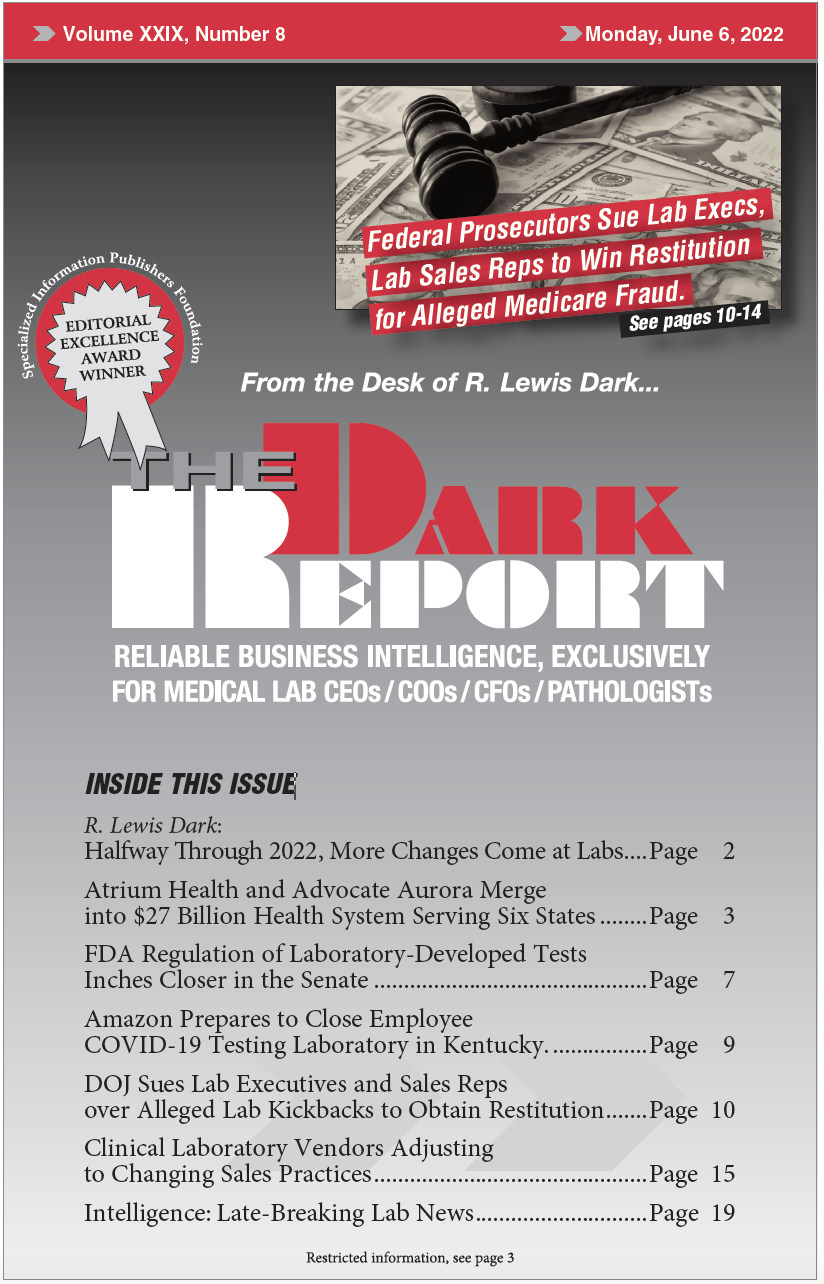This is an excerpt of a 819-word article in the June 6, 2022 issue of THE DARK REPORT. The full article is available to members of The Dark Intelligence Group. CONGRESSIONAL LAWMAKERS ARE MOVING A BILL FORWARD that would give the federal Food and Drug Administration (FDA) the power to regulate laboratory-developed tests. There are …
Passage of FDA LDT Regulation Inches Closer in the Senate Read More »
To access this post, you must purchase The Dark Report.


